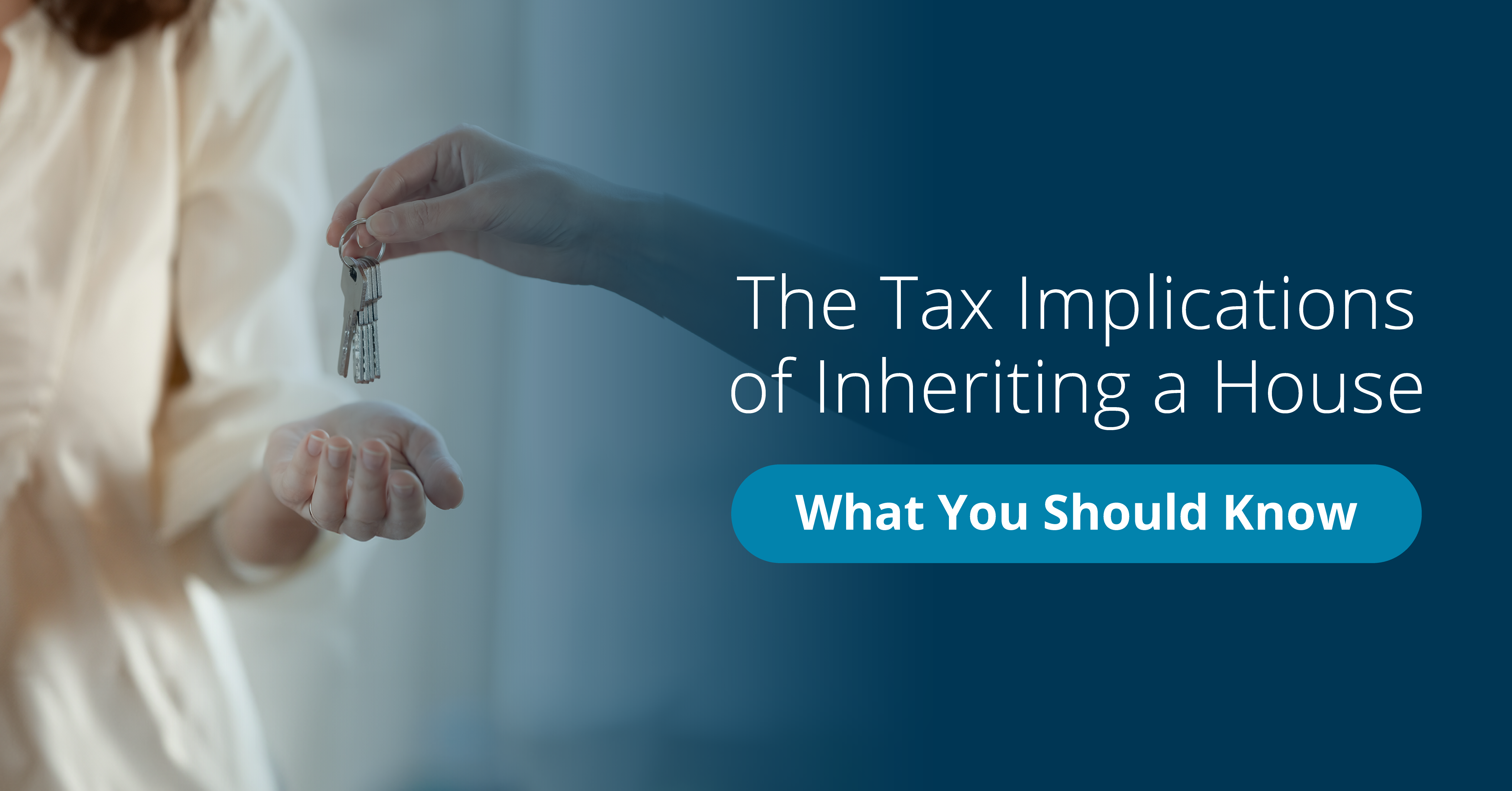You’ve spent a lifetime diligently accumulating wealth, meticulously planning, and making financial decisions to secure a bright future for your loved ones. You want to ensure that the next generation is well-equipped to embrace life’s opportunities fully.
As such, it’s natural to consider how your assets will benefit your family when you pass. However, inherited properties have numerous tax implications that must be sorted out beforehand to ensure your loved ones have a smooth transition.
Here are some things you should know about taxes for inherited houses and properties.
How are Inherited Houses Taxed?
Inheriting a house requires understanding the various tax implications to ensure a smooth transition and financial planning for the future. Here are some inherited house taxes that you should know to round out your comprehensive estate plan.
1. Inheritance Tax
Inheritance tax is what the estate beneficiaries or inheritors must settle as they acquire the property. Thus, paying the inheritance falls on your inheritor’s side rather than your estate.
Currently, the United States doesn’t have a federal inheritance tax. However, six states have imposed it: Iowa, Kentucky, Maryland, Nebraska, New Jersey, and Pennsylvania. Living in these states could mean your heirs are subject to state inheritance taxes. But your beneficiaries won’t have to worry about it if the property is in a state that does not mete inheritance taxes, like Utah.
The tax rate may also vary depending on the property’s location, the asset’s value, and the inheritor’s relationship to you.
2. Estate Tax
The estate tax is imposed on the total value of a deceased individual’s estate. Unlike the inheritance tax, it is paid out of your estate, so your inheritors won’t have to settle the amount. That said, it is still wise to minimize the taxable amount out of your estate to ensure that your heirs will get as much of the hard-earned money you’ve worked for.
The executor or personal representative is responsible for filing and determining the property inheritance tax return and liability. They must then use the assets to pay the tax bill by liquidating them or using cash reserves in the estate, after which they will distribute the assets to your indicated beneficiaries or inheritors.
For 2023, the federal estate tax threshold stands at $12.92 million. Estates valued above this threshold are subject to federal estate taxes ranging from 18% to 40% of the total value. One thing to note is that Utah does not levy a state estate tax on its residents, but federal estate taxes apply. It is best to consult with a fiduciary advisor to walk you through the estate planning process.
3. Capital Gains Tax
The capital gains tax comes into play when selling an inherited property. It is a tax on the increase in the property’s value from when the beneficiaries acquire it until the time of sale. Inheritors must pay this tax when selling the inherited property.
To calculate how much capital gains tax to pay for the property, get the difference between its fair market value at the time of inheritance and its sale price. If the inheritor sold the property shortly after obtaining it, the capital gains tax liability may be minimal. However, they may have to pay more if they sell it after some time, and the value appreciates.
Which Properties are Exempted from Paying Estate Taxes?
Some properties enjoy tax exemptions, providing more opportunities for efficient estate planning. Understanding these exemptions can help you and your family navigate the complexities of estate taxes for better financial management.
Property passing to a surviving spouse
The unlimited marital deduction is the provision that exempts properties given to a surviving spouse from estate taxes. Your surviving spouse won’t have to pay property inheritance taxes if you pass away and leave them your estate.
This exemption recognizes the importance of providing financial security for the surviving spouse and encourages the preservation of family assets. As such, married couples can seamlessly transfer their assets to the surviving spouse, ensuring their financial well-being.
Property passing to charity
Properties donated to charities are also exempted from property inheritance taxes if the receiver is a recognized organization. If the property is owned outright, it can be placed in a charitable remainder trust. This estate tax exemption aims to encourage philanthropy and support for charitable causes.
If you have a cause you want to support even after you pass, including donation provisions in your estate plan can eliminate estate taxes on the value of the donated property and preserve more assets for their benefit.
Property passing to an heir
Properties can be transferred to heirs without incurring additional taxes if the total amount of the estate does not exceed the minimum threshold to trigger the Federal estate tax. For now, the lifetime exclusion against the estate tax in Utah, as with the rest of America, is about $12.92 million for an individual and $25.84 million for a couple, so long as they are both United States citizens. This rule will sunset in 2025, but be aware that this can change with a stroke of a pen by the POTUS.
How to Determine the Taxable Value of Inherited Properties
If you want your beneficiaries to sell the inherited property, identifying the estate’s taxable value is essential in understanding its potential implications on your finances.
1. Get estimates from real estate agents
Real estate agents have in-depth knowledge of the local housing market and can provide a comparative market analysis (CMA) to estimate the property’s taxable value. A CMA considers several factors, such as recent sales of similar properties in the area, current market conditions, and property-specific characteristics.
This information becomes crucial in calculating taxes, primarily when considering the capital gains tax upon the eventual sale of your property. So, consider obtaining estimates from multiple real estate agents to gain a range of values. Note that this figure is not final and will not be used for legal proceedings.
2. Review the tax assessor’s records
Tax assessors maintain records of property values for tax purposes. These records often include assessments based on the property’s size, location, and features. Examining the tax assessor’s records can give insights into the assessed amount, which the beneficiary can use to determine the estate’s taxable value.
However, tax assessments may not always reflect the property’s current market value, so use another valuation method alongside it.
3. Work with a real estate appraiser
A real estate appraiser is a licensed expert in assessing property value who can provide an accurate and objective valuation of the inherited property. With their help, the beneficiary can obtain a comprehensive appraisal report that outlines the property’s value to establish a more accurate taxable amount.
This approach is helpful when dealing with complex and unique properties. For instance, assessing the taxable value of a historical landmark or a specialized commercial property can be challenging. So if the inherited property falls under these categories, consulting a real estate appraiser becomes invaluable in accurately determining its taxable value.
How to Reduce Tax Obligations on Inherited Property
As mentioned, inheriting properties can come with hefty tax obligations. However, there are strategies you and your beneficiaries can employ to reduce tax liability and lessen the financial burden.
1. Sell the inherited property quickly to leverage the step-up basis
A property’s tax basis is adjusted to its fair market value at the time of inheritance, so consider putting it up for sale as soon as possible.
Capital gains tax involves getting the difference between the property’s sales price and fair market value. Under the step-up basis, its cost will be adjusted to its fair market value at the time of the owner’s death.
Let’s illustrate this with two examples: one where the step-up basis is applied and one where it is not.
You bought the property at $150,000, and the value has risen to $250,000 at the time of your death. Without the step-up basis, its cost will stay at $150,000. When your heirs decide to sell it, a capital gains tax will be meted out on the $100,000 value appreciation.
But with the step-up basis, the property’s value will be stepped up to $250,000. Hence, if your heirs sell it for $250,000, they will virtually not incur any capital gains, avoiding capital gains tax. As such, selling it soon after inheriting it can minimize your capital gains and lower the associated tax.
The rules for the step-up basis may vary per state.For example, each property only gets to participate on a step-up basis once in Utah.
2. Make it the primary residence
The Taxpayer Relief Act of 1997 has provided the benefit of excluding up to $250,000 of capital gains for single persons and $500,000 for married couples filing jointly from taxation when selling their residences. However, the inheritor can only claim this if they’ve lived in the property for two out of five years before selling it.
They should then consider moving into the inherited property and making it their primary residence to significantly reduce property inheritance tax obligations.
3. Turn it into a rental
Alternatively, rent out the inherited property if the inheritor doesn’t want to move or wants to keep it legally in their family’s hands. This approach lets them leverage deductions related to rental expenses, like property taxes, mortgage interest, repairs, and depreciation.
4. Deduct selling expenses from capital gains
Besides quickly selling the inherited property, deducting sale expenses can lower capital gains and the associated tax. So, maintain detailed records of these expenses to substantiate deductions. These expenses may include real estate agent commissions, legal fees, and closing costs.
5. Voluntarily disclaim inherited property
If the beneficiary wishes to avoid tax obligations, they can voluntarily decline the inheritance so it passes to the next eligible beneficiary. This strategy can be great if the inherited house taxes far outweigh the potential benefits.
6. Move to a state without inheritance and estate taxes, like Utah
If you plan to leave behind property for your beneficiaries, consider relocating to a state that does not levy inheritance and estate taxes. As mentioned, Utah does not impose these, so establishing residency in this tax-friendly state can minimize or eliminate inheritance-related obligations.
Also worth considering is investing in real estate in Utah. If you have properties in states that have a state inheritance tax or a state estate tax (or both), you should consider doing a 1031 exchange. However, such financial maneuvers should be consulted with a financial advisor to ensure that you will not pay more taxes than you need, while still being under the good graces of the IRS.
Plan to Secure Your Family’s Inheritance
Inheriting property brings opportunities and tax implications that necessitate careful consideration. However, navigating the tax obligations can be difficult if you’re unsure what to do. Understanding the tax landscape can help you protect your family’s wealth and secure their financial well-being when you pass.
That said, ensure your finances are in good hands and give your loved ones a solid financial foundation for their future. Consider working with a professional wealth coach like Tencap Wealth Coaching to help you build a comprehensive estate plan and ensure your family’s financial security.

Greg Black, CFP®, ChFC®
Greg Black is the owner and founder of Tencap Wealth Coaching, an independent investment advisory firm founded on academic investing principles. As a Certified Financial Planner, Greg takes an educational approach to helping his clients be settled and responsible with their financial circumstances. Greg specializes in helping his clients create a proactive plan to minimize the exposure of market conditions while still harnessing the incredible power of global financial markets.
Greg specializes in "complexity" and is skilled at turning a complicated situation into an organized strategy for the families he serves. Greg, and each advisor of Tencap, is a stated fiduciary. You never have to wonder if your best interest is being served. Greg has been transforming the investor experience since 2012.
-
Greg Black, CFP®, ChFC®#molongui-disabled-link
-
Greg Black, CFP®, ChFC®#molongui-disabled-link
-
Greg Black, CFP®, ChFC®#molongui-disabled-link
-
Greg Black, CFP®, ChFC®#molongui-disabled-link








